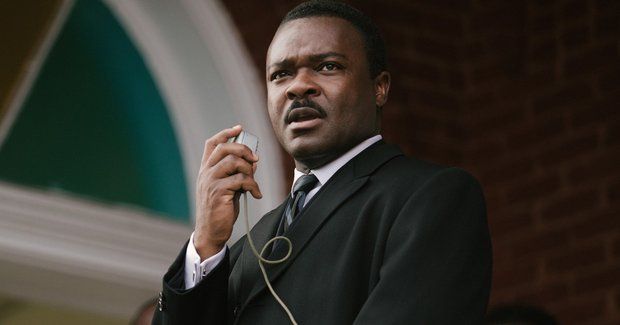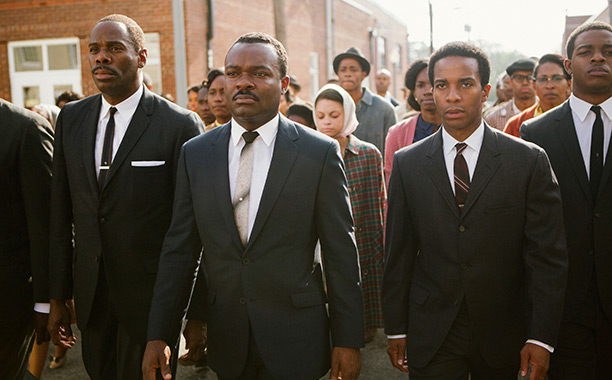Better than sex and smart people.
2014 was a big year for true stories in film. In fact half of last year’s eight nominations for Best Picture depicted the lives of real historical figures. Two of those films were about really smart people and their sex lives (Alan Turing in The Imitation Game and Steven Hawking in The Theory of Everything). One was about a Navy SEAL who killed hundreds of Iraqis and wrote a bestselling memoir about it (Chris Kyle in American Sniper). The most interesting and important of the four films was Selma, which deals with a few months in the life of Martin Luther King Jr.
The third feature from directorial rising star Ava DuVernay, Selma focuses on the events surrounding a march organised by King, petitioning the American government to allow black Americans to exercise their voting rights in the segregationist southern states. The march took place on a 54-mile stretch of highway between the town of Selma, Alabama and the state capital Montgomery. It resulted in the event known as “Bloody Sunday”, in which the peaceful protestors were brutally beaten by state police armed with batons, bull whips and baseball bats wrapped in barbed wire, all live on TV.
Rather than trying to compress the entire civil rights movement into a two hour history lesson, DuVernay begins the film in the few months before the march and ends it in the months afterwards, when President Lyndon Johnson enacted the Voting Rights Act. There’s no “I have a dream” speech. There’s no assassination scene. Instead we see King, played with quiet command by David Oyelowo, strategising with the other leaders, squabbling with Johnson in the White House, taking the trash out at his family home.

Merely as an act of ventriloquism, Oyelowo has completely inhabited the character of King, and he deserves credit for that. But it’s his ability to humanise the man, rather than the figure which really makes his performance noteworthy. In amongst the rousing speeches (and there are plenty) King has moments of doubt and jealousy. He looks tired and annoyed, and over it. You can see the struggle in his face, in the way he moves. You can feel it. Oyelowo’s performance helps to make it feel like Selma really happened.
Of course the American suffrage movement involved more than one man, and DuVernay devotes plenty of screen time to other key IRL activists like Ralph Abernathy, Andrew Young and Hosea Williams (played by the sublime Wendell Pierce, aka the Bunk. What does it say about the academy that Selma only received two Oscar nominations, whereas a milquetoast offering like The Imitation Game, which is allegedly riddled with historical inaccuracies gets eight? What about the fact that American Sniper, a film that’s been compared to the Nazi sniper propaganda film in Inglorious Bastards, a film that glorifies a guy who brags in his book about killing “damn savages”, received six?
While it’s easy to say that a film like Selma is even more important in the context of the recent civil unrest in the USA, film awards shouldn’t be judged on a political basis. But come on! Selma is just a better film than either of these bio-pics. The fact alone that Oyelowo was overlooked for Best Actor is just crazy. Similarly DuVernay, whose directorial blend of subtlety and kinetic energy were really impressive, was very hard done by not to receive any attention from the Academy. It’s perhaps to too simplistic to relate the snub of Selma to notions of race and sex but here we have a young, black woman directing an ensemble cast of mostly black actors, and dudes like Clint Eastwood are getting six freaking nominations. I’m not sure what all this says about the Academy, but I’m sure it’s nothing good.
8/10
For more Reviews, click here. If you’re digging ReelGood, sign up to our mailing list for exclusive content, early reviews and chances to win big!
